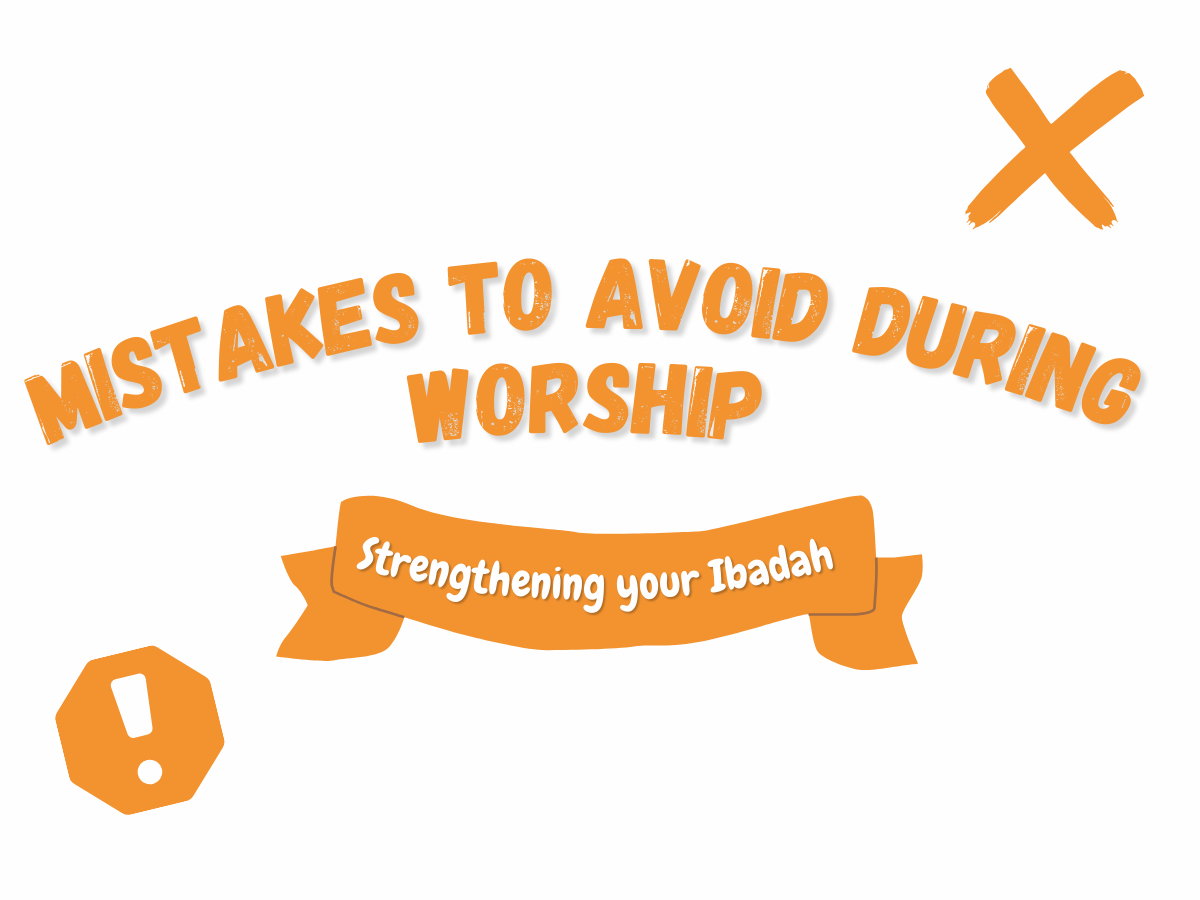
05 Mar Mistakes to Avoid During Worship
Lack of Concentration (Khushu’):
One of the biggest mistakes is to pray without focusing on the prayer itself. It’s important to concentrate on the words being recited, their meanings, and the act of communicating with Allah.
Rushing:
Many people rush through their prayers, not giving each position its due time. It’s crucial to perform each posture of the prayer (standing, bowing, prostrating, etc.) with calmness and composure.
Incomplete Purification (Wudu’):
Ensure that you have performed ablution correctly before starting your prayer. Incomplete or incorrect wudu’ can invalidate the prayer.
Incorrect Body Posture:
Maintaining the correct body posture during prayer is essential. This includes standing straight, bowing properly, and prostrating fully. Ensure your back is straight while standing and bowing, and your forehead, nose, both palms, both knees, and all toes are touching the ground during prostration.
Incorrect Recitation:
Pronouncing the words of the prayer incorrectly can change their meaning and affect the validity of the prayer. Make an effort to learn the correct pronunciation of the Surahs and supplications recited during salah.
Skipping Sunnah and Nawafil:
While the obligatory prayers (Fard) are crucial, the Sunnah and Nawafil prayers hold great importance too. Skipping them without valid reasons is not advisable.
Neglecting the Sunnah Actions:
Sunnah actions, such as raising hands while starting the prayer (Takbir al-Ihram).

Distraction by the Surroundings:
It’s common to get distracted during prayer, but it’s important to strive to maintain focus despite external distractions.
Ignoring Corrections:
If you realise you’ve made a mistake during prayer, correct it immediately. Ignoring mistakes knowingly can invalidate the prayer.
Being Unmindful of the Time:
Each prayer has a specific time window during which it should be performed. Ensure you’re offering your prayers within their designated time frames.
Lack of Humility and Sincerity:
Approach prayer with humility, sincerity, and the awareness of standing before Allah. Avoid showing off or performing prayers mechanically without connecting spiritually.
Moving before the Imam (in congregational prayer):
It is important to not move before the Imam (person leading) moves. To counter this, one should wait a moment after the Imam says “Allahu Akbar”.
Sunnah’s for Salah
Saying “A’udhu billahi min ash-shaytan ir-rajim” (I seek refuge with Allah from the accursed devil) silently before reciting Surah Al-Fatiha:
This is a recommended practice before starting the recitation of the Quran in every Rak’ah of the prayer.
Reciting Ayat al-Kursi after completing the prayer:
It’s a Sunnah to recite Ayat al-Kursi (Quran 2:255) after concluding the prayer, particularly the obligatory prayers.
Seeking forgiveness before Tasleem:
Before concluding the prayer with the Tasleem, it’s Sunnah to seek forgiveness from Allah and make du’a for oneself, family, and other believers.
Reciting the Du’a after the Tasleem:
There are specific supplications recommended to be recited after giving the Tasleem, such as the Du’a for seeking protection from various calamities and misfortunes.
Touching the heels together in Sujood:
A forgotten Sunnah of the Prophet (peace and blessings be upon him) is to keep the heels touched and together when in prostration.



